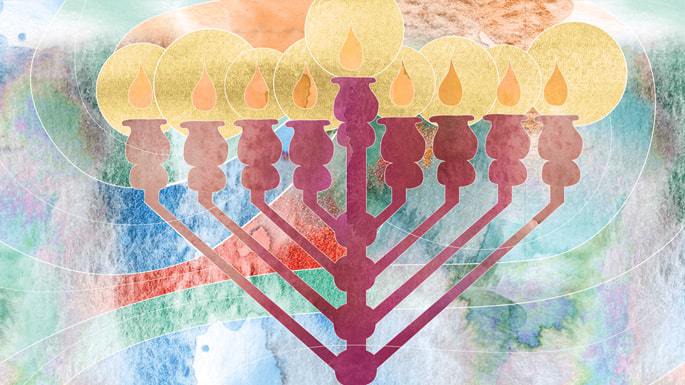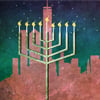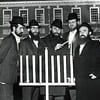
1. It’s a Hakhel Year
In ancient times, every 7 years the entire nation would gather in the Holy Temple to hear the king read from the Torah. Today, the seventh year, known as a Hakhel year, is a special time for gathering Jewish people together to study Torah, gain inspiration, or even just enjoy each other’s company. Chanukah is a perfect time to host YOUR Hakhel gathering!
Download: How to Host a Hanukkah Hakhel
2. It Has Two Sundays
Chanukah can begin on any day of the week except Monday night, but it’s only when it begins on Sunday night—as it does this year—that we light the menorah twice on Sunday. This means that you have two super convenient nights—the first and the eighth—on which to host your Chanukah party.
3. Hanukkah Is During the December Holidays
We’re coming out of a Jewish leap year, which had an additional, 13th month, meaning Chanukah is pretty late in the season this year, starting on Dec. 18th and ending on the 26th. This means that many more people will be off work and free to attend your Chanukah celebration this year.
4. We’re Out of the Pandemic
After two years of drive-thru celebrations, drive-up concerts, and drive-by menorah lightings, we are good and ready to get together in person, socialize, see each other’s faces up close, and enjoy getting sprinkled with powdered sugar as our friends take those first bites out of oversized jelly doughnuts.
Read: 8 Ways We Adapted Chanukah Celebrations During the Pandemic
5. We’ve Collected the Best Recipes for You
After years of frying and fiddling, concocting and confecting, testing and tasting, we’ve put together our collection of all-time favorite Chanukah recipes, including the crispiest latkes, the sugariest doughnuts, and even our classic Chanukah party surprise cake.
Browse: Dozens of Hanukkah Recipes
6. Shabbat Is Rosh Chodesh
Chanukah is the only Jewish holiday that extends from one month to the next. This year, the first day of Rosh Chodesh Tevet is on Shabbat. This means that we get to say the longest Grace After Meals, including special inserts for Chanukah, Shabbat and Rosh Chodesh. Another unique element of this day is that three Torah scrolls are taken from the ark and read from during morning services: one scroll for the weekly Parshah, a second scroll for the Rosh Chodesh reading, and a third scroll for the Chanukah reading. (The only other occasions on which three scrolls are taken out are Simchat Torah, and when Rosh Chodesh Adar or Rosh Chodesh Nissan fall on Shabbat).
7. It’s Now!
The Kabbalists teach us that every moment G‑d creates the world anew. This year brings with it fresh opportunities and new significance that have never existed before and will never exist again. Grab the moment, and make this a Chanukah to remember!






